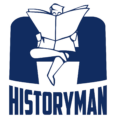The Grand Jury during the colonial times was, in many ways, the catalyst for change and a mouthpiece for the wishes of the citizenry in their dealings with the government. Their purview extended beyond the criminal statutes that encumber the calendar of today’s grand juries, and their wishes were relayed to the highest offices in the colony for action. In 1774 the firebrand Justice William Henry Drayton stood before an elected group of jurists in Cheraw, SC, and delivered a speech on the Rights of Man under the Law that would be repeated in form throughout the back country. Taxation without consent was at the forefront of the argument in chief. In the end, the Grand jury declared, “This Right of being exempted by all laws except those enacted with the consent of Representatives of our own election we deem so essential to our freedom, and so engrafted in our constitution, that we are determined to defend it, at the hazard of our lives and fortunes.”
The Cheraw Resolves were published in the South Carolina Gazette dated December 12, 1774 along with the listing of Patriot signers.
PRESENTMENTS OF THE GRAND JURY FOR THE DISTRICT OF CHERAW.
Cheraw Grand Jury November 29, 1774, printed in December 12, 1774 SC Gazette:
*We present as a grievance, the want of a law for clearing Pee Dee River, and to prevent trees being fell therein, its navigation at present being unsafe
*We present as a Grievance the want of a law to prevent the hunting of deer by fire in the night time, by which means many horse and meat cattle are destroyed, to the great damage of the owners.
*We Present Andrew Gibson for willful and deliberate perjury, by the information of George Cusack
*We Present as a grievance of the first magnitude, the right claimed by the British Parliament to tax us, and by their acts to bind us in all cases whatsoever. When we reflect on our other grievances, they all appear trifling in comparison with this. For if we may be taxed, imprisoned and deprived, of life, by the force of edicts to which neither we nor our Constitutional representatives have ever assented, no slavery can be more abject than ours. We are however sensible that we have a better security for our lives, our liberties and fortunes, than the mere will of the Parliament of Great Britain and are fully convinced that we cannot be Constitutionally taxed but by representatives of our own election, or bound by any laws but those to which they have assented. This Right of being exempted by all laws except those enacted with the consent of Representatives of our own election we deem so essential to our freedom, and so engrafted in our constitution, that we are determined to defend it, at the hazard of our lives and fortunes , and we earnestly request that this Presentment be laid before our Constitutional Representatives, The Common House of Assembly of this Colony, that it may be known how much we prize our Freedom, and how resolved we are to preserve it.
We recommend that these our Presentments be published in the several Gazettes of this province.
Alex Macintosh (foreman)
Benny Wm Harrington
Thomas Ayers
Robert Blair
William Feques
Robert Lide
George Hicks
John Hodges
Arthur Hart
Elias Dubois
Robert Clary
Martin Dewit
Thomas ellerbee
Martin Kolb
John Kimbrough
Moses Spight
Thomas Lide
Thomas James
John Wilds
Thomas Edwards
History of the Old Cheraws: Containing an Account of the Aborigines of the …
By Alexander Gregg

